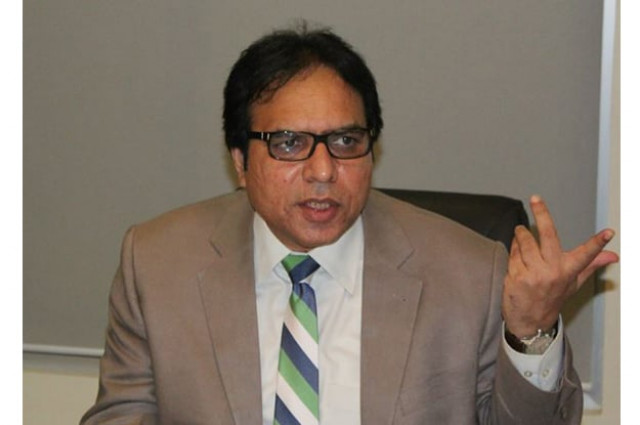Water Day: 80 filtration plants near completion
PSPC CEO says awareness about hygiene will help draw more benefits from water schemes

PSPC CEO Waseem Ajmal Chaudhry. PHOTO: fb.com/punjabsaafpani
He was speaking to The Express Tribune regarding the company’s activities in the province.
He said installation of filtration plants was underway in phases. In the first phase, plants were being installed in select tehsils of the Bahawalnagar, Lodhran, Bahawalpur and Rahim Yar Khan districts. These tehsils included Minchanabad (Bahawalnagar), Lodhran (Lodhran), Hasilpur (Bahawalpur) and Khanpur (Rahim Yar Khan).
He said around 40 million residents would have access to potable water once filtration plans were installed in all 144 tehsils across the province. Chaudhry said he agreed that access to safe drinking water should be a human right but added that there was also a need for raising awareness among the public about the importance of water conservation.
He said the company had been formed on the directive of Chief Minister Shahbaz Sharif to ensure provision of potable water across the province. He said its schemes were focusing on areas away from major cities that were without access to piped water supply. Chaudhry said one of the objectives was to enable beneficiary households to cut down on their healthcare expenditure. He said women in rural areas would no longer need to walk long distances to fetch drinking water for their families. “They can spend their time in more productive activities now,” he said. Chaudhry stressed the need for raising awareness about hygienic practices like use of clean utensils and containers. He said greater awareness about hygiene and cleanliness would enable communities to draw maximum benefits from the water supply schemes.
On ways to preserve fresh water resources, he said a public-private partnership was needed to prevent contamination of fresh water resources. “We must protect our aquifers for the health of our future generation,” he said.
Published in The Express Tribune, March 22nd, 2016.


















COMMENTS
Comments are moderated and generally will be posted if they are on-topic and not abusive.
For more information, please see our Comments FAQ